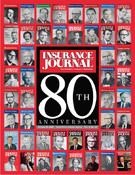The notice condition in general liability policies requires that the insured provide the insurer with timely notice of any potential occurrence and the receipt of suit papers. Failure to give proper notice of either of these events constitutes “late notice” that can void coverage under the policy for that occurrence. Most states will, however, excuse delayed or “late notice” if the insurer has not suffered “prejudice.” What is the rule in Texas?
The purpose of the notice of suit condition is to notify the insurer that either an accident has happened that may lead to a claim or the insured has been served with process and that the insurer is expected to defend the suit. It also allows the insurer to control the litigation. The phrase “as soon as practicable” in the condition means notice within a reasonable time, and what constitutes a reasonable time “depends on the facts and circumstances” of each case. However, reality is different if the insured is able to avoid the effect of its failure to give notice.
Prior to 1973, an insurer seeking to void coverage did not have to prove that it had been prejudiced by its insured’s failure to comply with the notice of occurrence, claim or suit conditions. Members Mut. Ins. Co. v. Cutaia, 476 S.W.2d 278 (Tex. 1972). The issue of whether an insurer has been prejudiced is normally a fact question. Duzich v. Marine Office of America Corp., 980 S.W.2d 857, 866 (Tex. App.-Corpus Christi 1998). Since 1973, an insurer seeking to avoid coverage for “bodily injury” or “property damage” claims on the basis of late notice has had the burden of proving that it was prejudiced by the insured’s late notice. (Though there is a line of federal district court cases holding that the insurer does not have to demonstrate prejudice if the late notice involves claims covered under Coverage Part B). See e.g., New Era of Networks, Inc. v. Great Northern Ins. Co., No. H-01-1841 (S.D. Tex. Aug. 3, 2003).
The notice-prejudice requirement stems from an order issued by the Texas State Board of Insu-rance requiring all general liability policies issued in Texas to include an endorsement providing:
“As respects bodily injury liability coverage and property damage liability coverage, unless the company is prejudiced by the insured’s failure to comply with the requirement, any provision of this policy requiring the insured to give notice of action, occurrence or loss, or requiring the insured to forward demands, notices, summons or other legal process, shall not bar liability under this policy.” Hanson Prod. Co. v. Americas Ins. Co., 108 F.3d 627, 629 (5th Cir. 1997) (quoting Board Order 23080).
In Hanson, the Fifth Circuit held that the notice-prejudice requirement would also apply to general liability occurrence-based policies issued in Texas by surplus lines insurers. The Fifth Circuit reversed a summary judgment in favor of the insurers that had held that Hanson’s notice to the insurers of a lawsuit was untimely as a matter of law. Notably, Hanson failed to notify its insurers of the original petition for 27 months and of an amended petition for five months. Hanson took the position that coverage was only triggered under the amended petition because the underlying claimants alleged property damage for the first time in the amended petition.
So what is prejudice to the insurer? Well, a recent case told us what is not prejudice. In St. Paul Guardian Ins. Co. v. Centrum G.S. Ltd., 2003 WL 22038321 (N.D. Tex. Aug. 29, 2003) a federal district court ruled the carrier’s inability to manage the defense and participate in settlement negotiations does not constitute prejudice. The insured sat on the suit for almost a year, then tendered the claim to the carrier. The carrier denied coverage based on Centrum’s late notice and, later, on its determination that the claim was not covered under the “personal injury” provisions of its policy.
The Centrum trial court first rejected the carrier’s argument that because State Board Order 23080 on its face only applies to bodily injury and property damage claims, there was no requirement to prove prejudice for late notice claims made under Coverage Part B. The court predicted that the Texas Supreme Court, if it ever addresses the issue, would apply the notice-prejudice requirement to claims made under Coverage Part B. The court next addressed St. Paul’s argument that it had been prejudiced by Centrum’s delay in giving notice because it lost the opportunity to investigate the case and to manage the defense. It also argued that it lost the opportunity to settle early. But the court would have none of it and disregarded the potential prejudice to the insurer. So long delays, with the loss of control of the suit required by the contract, apparently are not harmful to carriers.
On the other hand, the court did identify Texas cases where prejudice was found. The court described several Texas state court decisions which recognized prejudice only where the insurer received notice of the lawsuit immediately before trial, or more commonly after a default or trial judgment had been rendered against its insured. In Filley v. Ohio Cas. Ins. Co., 805 S.W.2d 844 (Tex. App.-Corpus Christi 1991, no writ), the insurer was prejudiced when it received first notice of lawsuit shortly before trial and three years after underlying occurrence and claim and insured could not be located to cooperate in the defense. In Members Ins. Co. v. Branscum, 803 S.W.2d 462 (Tex. App.-Dallas 1991, no writ), the insurer was prejudiced when the insured failed to forward petition and service of suit papers until after default judgment was entered against insured.
Of the Texas cases cited in Centrum that found prejudice, only Filley involved a situation where the insurer received notice before a judgment was entered against the insured. In that case, the insured (Matthews) was a contractor who was sued by the Filleys for damaging property adjacent to a building that he had demolished. He had a general liability policy with Ohio Casualty. After the job was completed, Matthews disappeared. The Filleys sued Matthews d/b/a Alinco Construction Company and served him by publication after they were unable to locate him. After a long delay, counsel for Alinco contacted Ohio Casualty requesting a defense. At that time, counsel informed Ohio Casualty that trial was “imminent.”
Because Ohio Casualty could not locate Matthews to find out from its insured what had happened, it denied coverage. The Filleys obtained a default judgment against Alinco and Matthews and then sued Ohio Casualty as a judgment creditor. The trial court granted Ohio Casualty’s summary judgment motion, and the court of appeals affirmed. The appellate court noted that Ohio Casualty did not become aware of the claim against Matthews and Alinco until just before trial. “Ohio was put in the posture of having to defend Alinco without the benefit of having its insured assist in its defense by disclosing facts, names of witnesses, and otherwise assisting in case preparation.” Under these tortured circumstances, the court held that Alinco’s late notice and Matthews’ unavailability had prejudiced Ohio Casualty. Suffice it to say, this will not be your common late notice fact pattern.
So prejudice to an insurer seems primarily limited to failure to give notice until just before (or after) trial. But if that is really so, then late notice is seldom a viable defense. Is that really the standard the Texas Supreme Court will adopt? Maybe, but it is closer to the truth that each case will have to be judged on its own particular facts—with prejudice requiring a clear showing of substantial harm.
Brian Martin is a partner in the Houston office of Thompson, Coe, Cousins & Irons L.P.
Topics Lawsuits Texas Carriers Claims Property Ohio Casualty
Was this article valuable?
Here are more articles you may enjoy.


 Portugal Deadly Floods Force Evacuations, Collapse Main Highway
Portugal Deadly Floods Force Evacuations, Collapse Main Highway  Florida Insurance Costs 14.5% Lower Than Without Reforms, Report Finds
Florida Insurance Costs 14.5% Lower Than Without Reforms, Report Finds  Gun Accessory Company to Pay $1.75 Million to Buffalo Supermarket Shooting Victims
Gun Accessory Company to Pay $1.75 Million to Buffalo Supermarket Shooting Victims  Insurance Issue Leaves Some Players Off World Baseball Classic Rosters
Insurance Issue Leaves Some Players Off World Baseball Classic Rosters 


